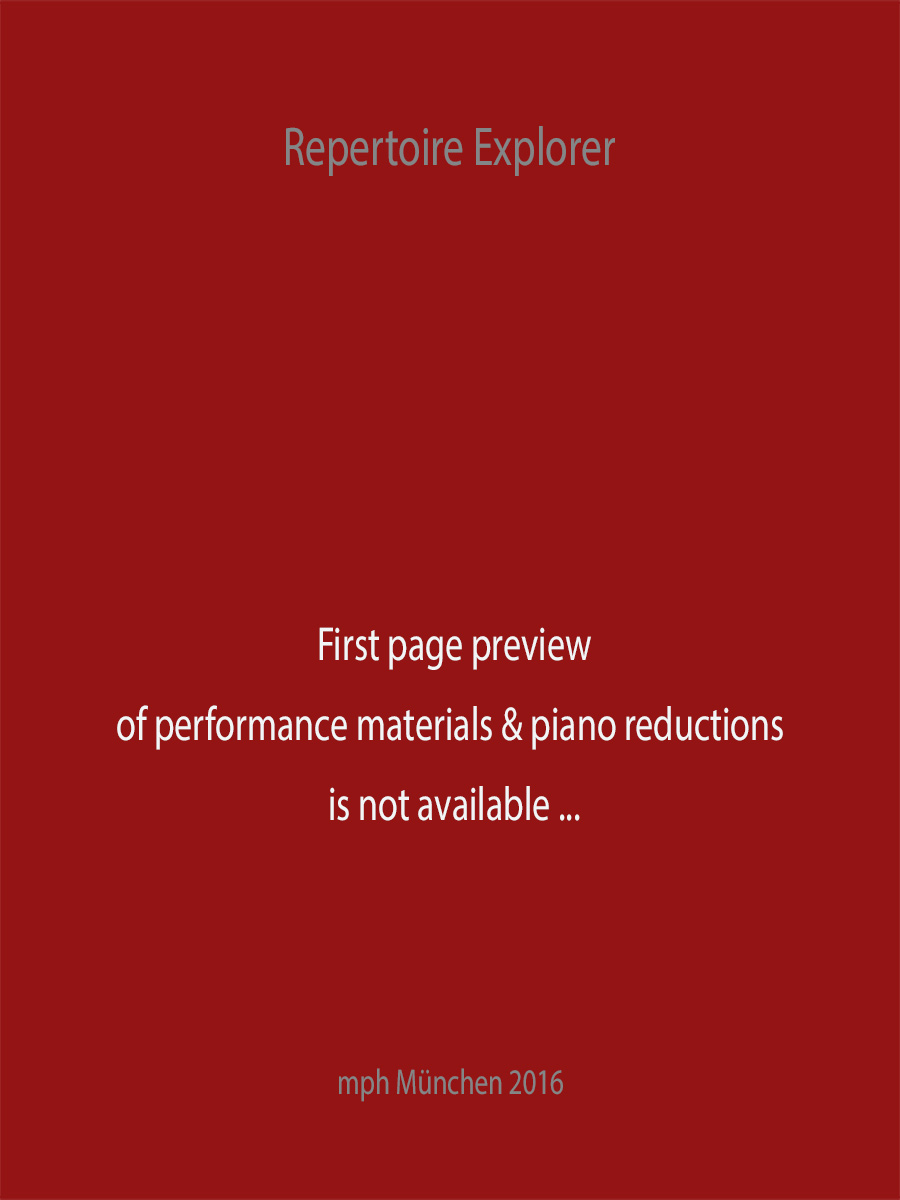Salamis, Siegesgesang der Griechen Op. 25 (Piano Reduction)
Bruch, Max
18,00 €
Preface
Bruch, Max
Salamis, Siegesgesang der Griechen Op. 25 (Piano Reduction)
The Berlin-born composer Max Bruch had a long and successful career that embraced notable conducting appointments in Germany and England; compositions in all major genres including operatic, orchestral and chamber works; and a distinguished reputation as a teacher in later years (his students included Oskar Strauss, Ottorino Respighi and Ralph Vaughan Williams). A pupil of Ferdinand Hiller and Carl Reinecke, Bruch was an ardent Mendelssohnian and staunchly opposed to the music of Wagner and Liszt. Whilst his conservativism made him a natural ally of the Brahms circle, he never achieved the degree of public success that Brahms himself enjoyed; and indeed, the older composer criticized Bruch’s music for its lack of originality. However, Bruch had a major success with his first Violin Concerto in G minor Op. 26, and was also highly regarded for his choral works (even by the Brahms circle).
Bruch was a close friend of Friedrich Gernsheim (1839-1916), another talented composer of choral music – and on more than one occasion, both men set the same poems for choir and orchestra. Hermann Lingg’s Salamis is just such a text: Gernsheim’s setting (his op.10) was published in August 1867, less than six months before Bruch’s own setting appeared in print. The text that so inspired them was published as a historical poem in Lingg’s Gedichte in 1854, recounting the defeat of the Persian army by the Greeks on the Strait of Salamis (near Athens) in 480 B.C. As part of their plans for invasion of Greece, the Persians constructed two large pontoon bridges across the Hellespont – the ‘yoke’ referred to in the second strophe of the poem – that were destroyed by the Greek fleet. It is possible that Lingg’s mention of a pæan in the final strophe is a reference to Aeschylus’s account of the battle, in which the approaching Persian forces heard the Greeks singing their hymn of battle before the Allied fleet came into view.1 The full text of Lingg’s poem runs as follows…
Read preface of full score / Vorwort der Partitur lesen HERE
Score Data
| Edition | Repertoire Explorer |
|---|---|
| Genre | Choir/Voice & Orchestra |
| Size | 225 x 320 mm |
| Printing | Reprint |
